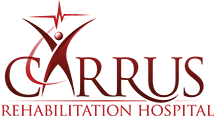
Vocational rehabilitation helps individuals with serious injuries or long-term disabilities to find meaningful work and regain independence. When an individual experiences a work-related injury, the journey to recovery often involves more than just medical treatment, especially if the injury has led to a big change in the individual’s life and circumstances.
Vocational rehabilitation involves specialized programs and services that serve to enhance skills and facilitate job placement for the individual and support the overall return-to-work process. It is centered around the idea that individuals be given the opportunity to regain employment and achieve economic stability.
What is Vocational Rehabilitation?
Vocational rehabilitation is a comprehensive process that usually combines the following:
- Assessment
- Training
- Upgrading of skills
- Refresher courses
- Counseling
- Job placement services
All these can be individualized, and help injured workers successfully reintegrate into the workforce. Its primary goal is to maximize an individual’s ability to find and perform meaningful work and become a productive member of society.
How Does It Work?
Vocational rehabilitation counselors or vocational therapists possess a unique set of skills, from compassion to strong critical and problem-solving skills. They have to be uniquely skilled to help previously injured workers or those with disabilities in the following:
1. Building Support Systems
Vocational counselors assist clients in finding a strong support system that can provide encouragement and guidance throughout the process.
2. Creating Individual Employment Plans
Tailoring their approach to each client, vocational counselors develop individualized plans that outline the steps required for the individual to secure suitable employment.
3. Skills Development and Enhancement
Vocational rehabilitation counselors prepare clients for the workforce by helping them develop new skills that align with their career interests and goals.
4. Job Application Assistance
A vocational counselor provides guidance and support in completing job applications, ensuring that clients present themselves effectively to potential employers.
5. Collaboration with Employers
To ensure success in specific roles, vocational rehabilitation counselors consult with potential employers, discussing how they can enable individuals with disabilities to thrive in the workplace.
6. Connecting with Community Resources
Vocational rehabilitation counselors point clients towards valuable community resources that can enhance their independence and quality of life. This may include assisting clients in finding appropriate assistive devices like wheelchairs or walkers.
7. Coping Skills Development
Recognizing the significant life changes experienced by individuals with disabilities, vocational counselors actively help them develop strong coping skills through targeted sessions and support.
A good vocational counselor empowers you to overcome challenges you are currently facing and will be facing as a consequence of your injury and embrace new opportunities at present and for your future.
Benefits of Vocational Rehabilitation
Vocational rehabilitation typically involves collaboration between different specialists, from healthcare professionals to insurance providers.
Some of the benefits that vocational rehabilitation provide include:
● Enhanced employability
Through vocational assessment and skills training, individuals can acquire new skills or redevelop existing ones, increasing their chances of finding suitable employment.
● Improved self-esteem and confidence
Returning to work and becoming productive can boost an individual’s sense of self-worth and self-confidence, especially after a life-changing injury or disability.
● Financial stability
By facilitating a successful return to work, vocational rehabilitation helps injured workers regain financial independence and reduce reliance on disability benefits.
● Social reintegration
Returning to work can provide a sense of belonging and social interaction, contributing to an individual’s overall mental and emotional well-being.
Importance of Support
During the vocational rehabilitation process, emotional and psychological support are also provided for the individual. Injured workers may face challenges and uncertainties as they navigate their recovery and reintegrate into the workforce, which is why a support team of professionals is invaluable. Access to counseling services and peer support groups for help in managing stress and anxiety can significantly aid in improving their overall well-being and successful return to work.
Comprehensive Rehabilitation Services in Sherman, TX
At Carrus Health Rehabilitation Hospital, we offer comprehensive rehabilitation services as part of our inpatient program. Your or your loved one’s care team will consist of board-certified physical medicine and rehabilitation physicians and other therapists who will address other aspects of your rehabilitation process.
Our inpatient programs can benefit those who have been involved in accidents and have developed disabling injuries. For such conditions, you need highly skilled and compassionate staff, like our team. In addition, we also offer a faith-based approach, which can further aid a patient’s recovery and quality of life.
For any questions or to schedule a consultation with one of our rehabilitation specialists, call our office today at (903) 870-2600. We look forward to being your partner going forward.

